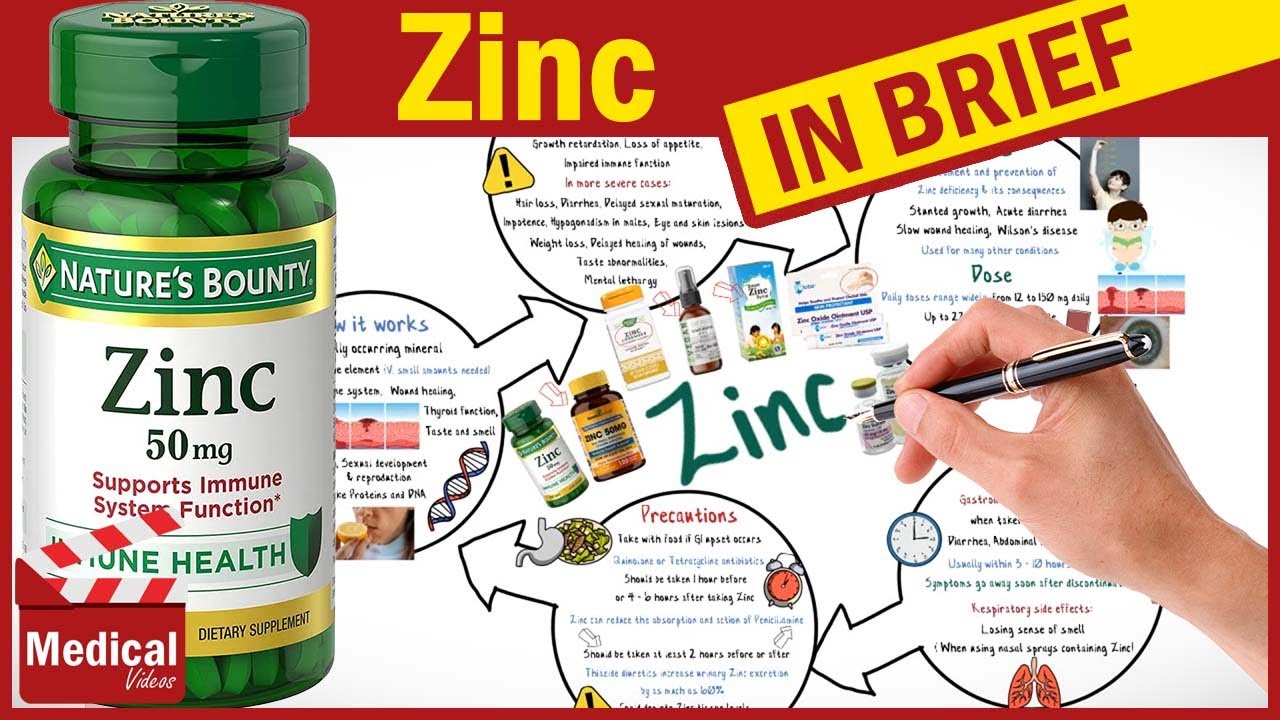The Benefits of Zinc
Zinc is an essential mineral that plays a crucial role in various bodily functions. In this article, we will explore the numerous benefits of zinc and how it can positively impact your overall health and well-being.
Zinc and Immune System
Zinc is well-known for its role in supporting a healthy immune system. It helps to stimulate the production of immune cells, such as T-cells and natural killer cells, which are vital in fighting off infections and diseases. Additionally, zinc assists in the development and activation of immune cells, enhancing their ability to recognize and destroy harmful pathogens.
Zinc and Wound Healing
Another significant benefit of zinc is its contribution to wound healing. Zinc plays a crucial role in the synthesis of collagen, a protein that is essential for the formation of new skin tissue. It also helps to regulate inflammation and promote cell growth, which aids in the healing process of wounds, cuts, and burns.
Zinc and Cognitive Function
Research suggests that zinc plays a vital role in cognitive function and brain health. It is involved in neurotransmitter regulation, which affects mood, memory, and learning abilities. Adequate zinc levels have been associated with improved cognitive performance and a reduced risk of age-related cognitive decline.
Zinc and Skin Health
Zinc is beneficial for maintaining healthy skin. It regulates oil production, reduces inflammation, and promotes the healing of acne and other skin conditions. Additionally, zinc possesses antioxidant properties that protect the skin from damage caused by free radicals, helping to maintain a youthful and vibrant complexion.
Zinc and Eye Health
Zinc is an essential mineral for maintaining optimal eye health. It is found in high concentrations in the retina, particularly in the macula, which is responsible for central vision. Zinc helps to protect the eyes from oxidative stress and age-related macular degeneration, a leading cause of vision loss in older adults.
Zinc and Reproductive Health
Zinc is crucial for reproductive health in both males and females. In males, zinc is necessary for the production of testosterone and sperm, supporting fertility and sexual health. In females, zinc is involved in hormone regulation and is essential for proper egg development and ovulation.
Zinc and Growth and Development
Zinc plays a vital role in growth and development, especially during childhood and adolescence. It is necessary for proper cell division and DNA synthesis, which are crucial for growth and tissue repair. Adequate zinc intake is particularly important for children, as it supports healthy growth, development, and immune function.
Zinc and Nutrient Absorption
Zinc is involved in the metabolism and absorption of various nutrients, including proteins, carbohydrates, and vitamins. It helps to break down food and convert it into usable energy. Additionally, zinc aids in the absorption of vitamin A, which is essential for vision, immune function, and cell growth.
Zinc Food Sources
Zinc can be obtained from a variety of food sources. Some excellent sources of zinc include:
Shellfish, such as oysters and shrimp
Red meat, such as beef and lamb
Poultry, such as chicken and turkey
Legumes, such as chickpeas and lentils
Nuts and seeds, such as pumpkin seeds and cashews
Whole grains, such as quinoa and oats
Dairy products, such as milk and cheese
Zinc Supplements
In some cases, it may be necessary to supplement with zinc to ensure adequate intake, especially for individuals with specific dietary restrictions or those at risk of zinc deficiency. However, it is important to consult with a healthcare professional before starting any supplementation regimen to determine the appropriate dosage and duration.

Zinc is a vital mineral that offers numerous benefits for overall health and well-being. From supporting the immune system to promoting wound healing and cognitive function, zinc plays a crucial role in various bodily functions. Incorporating zinc-rich foods into your diet or considering supplementation can help ensure you receive adequate amounts of this essential mineral.
Frequently Asked Questions about the Benefits of Zinc
1. What are the main benefits of zinc?
Zinc is essential for the proper functioning of the immune system, wound healing, DNA synthesis, and cell division. It also plays a role in maintaining healthy skin, hair, and nails.
2. Can zinc help boost the immune system?
Yes, zinc is known to enhance the immune system by supporting the production and function of white blood cells.
3. How does zinc contribute to wound healing?
Zinc is involved in various stages of the wound-healing process, including inflammation, tissue repair, and collagen synthesis.
4. Does zinc have any antioxidant properties?
Yes, zinc acts as an antioxidant by protecting cells against oxidative stress and reducing damage caused by free radicals.
5. Can zinc help with acne?
Zinc is effective in reducing acne symptoms due to its anti-inflammatory properties and its ability to regulate sebum production.
6. Is zinc important for maintaining healthy hair?
Yes, zinc is essential for healthy hair growth and preventing hair loss. It helps in the production of keratin, a protein that makes up the structure of hair.
7. Can zinc help improve fertility?
Zinc plays a crucial role in reproductive health for both men and women. It is involved in hormone production, sperm development, and egg maturation.
8. Does zinc have any cognitive benefits?
Research suggests that zinc is important for cognitive function, memory, and learning. It is involved in the communication between brain cells.
9. Can zinc help reduce the duration of a common cold?
Taking zinc supplements within 24 hours of the onset of cold symptoms may help reduce the duration and severity of the common cold.
10. Are there any risks or side effects associated with zinc supplementation?
While zinc is generally safe when taken within recommended doses, excessive intake can lead to adverse effects such as nausea, vomiting, and copper deficiency. It is important to follow the recommended dosage guidelines.




